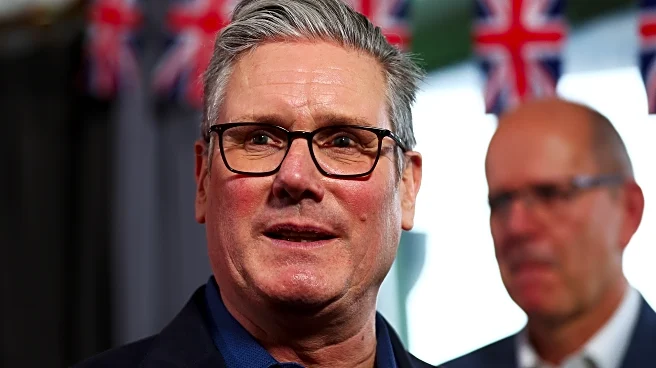What's Happening?
The Chicago Cubs have concluded their 2025 season, which was marked by strong team chemistry and a playoff series victory, their first since 2017. Despite being eliminated by the Milwaukee Brewers in the National
League Division Series, the team and its leaders have emphasized the unique bond and camaraderie that developed over the season. Key figures such as manager Craig Counsell and president of baseball operations Jed Hoyer have praised the team's unity and dedication. The Cubs' season included a successful trip to Japan for the Tokyo Series, which contributed to the team's cohesion. Players like Dansby Swanson and Ian Happ have highlighted the importance of relationships and teamwork in their success.
Why It's Important?
The Cubs' emphasis on team chemistry and unity highlights the intangible factors that contribute to a successful sports team. This focus on relationships and mutual support can enhance performance and resilience, even in the face of challenges. The Cubs' experience underscores the value of fostering a positive team culture, which can be a model for other sports organizations. The team's ability to maintain strong bonds could influence their future performance and attract talent who value a supportive environment. The Cubs' approach may also impact how other teams prioritize team-building activities and player relationships.
What's Next?
Looking ahead to the 2026 season, the Cubs face the challenge of maintaining their team chemistry amidst potential roster changes. The team will need to find ways to replicate the positive dynamics of 2025 while integrating new players. The Cubs' management is expected to focus on retaining key players and maintaining consistency in the coaching staff to preserve the team's culture. The upcoming season will test the Cubs' ability to build on their achievements and strive for further success, including a potential World Series championship.











